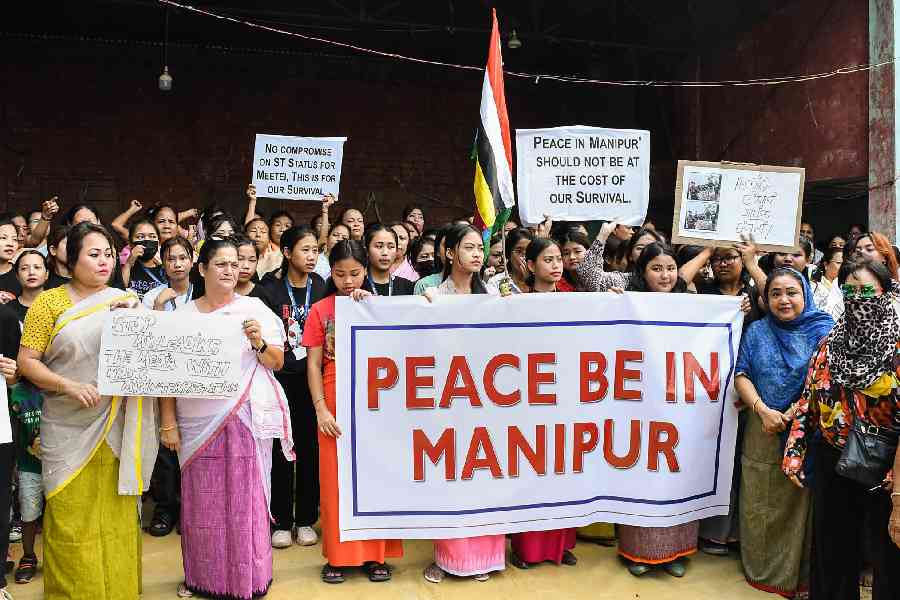The gruesome video showing women being stripped and paraded naked in Manipur reverberated globally, prompting even the previously silent prime minister to speak up. He briefly acknowledged violence against women without contextualising the ethnic conflict in Manipur and mentioned instances of such violence in non-BJP governed states such as Rajasthan and Chhattisgarh. The cue was taken up by other ministers. The women and child development minister, for instance, tried to dodge the issue by drawing attention to rapes in states ruled by Opposition parties.
Everyone seems to be missing the woods for the trees. Manipur, a state embroiled in an ongoing conflict involving two ethnic groups, is also plagued by trade in firearms and drugs. There is thus a fundamental difference in the nature of violence against women in conflict zones. It has far-reaching repercussions.
Sexual violence remains a potent threat to Indian women. It varies in intensity but is a pervasive challenge across states. According to the National Crime Records Bureau, crimes against women surged by 15.3% in 2021 from those in 2020; they have risen by an alarming 87% over the last decade. Rape cases rose by around 20% from 2020 to 2021, totalling 31,677 cases in 2021.
The video from Manipur was shot in May. The state government responded after the footage surfaced. The horror wasn’t an isolated incident, as has been acknowledged by the Manipur chief minister. Similar first information reports have been filed in the past few months. Does the indifference of the leadership imply that rape is an inevitable collateral during conflict? The incident depicted in the video wasn’t just a criminal act; it signified a breakdown of law and order.
Conflict-ridden zones affect women disproportionately. Sexual offences against women amidst conflict reveal the deeply embedded nature of patriarchal values. Historically, the capturing of women as reward during conflicts has been a global practice. Rape and humiliation have served as ways to assert dominance and signal control over the enemy’s ‘property’ that it failed to protect. These crimes embody both hatred towards the adversary and a means of displaying triumph. The repercussions of such conflict-driven crimes extend beyond individual victims and their families, terrorising and humiliating the opposing side, scarring the entire community and causing trans-generational trauma.
Incidents such as these can embolden bystanders to take the law into their own hands and become vigilantes dispensing their brand of justice. They send a clear message to impressionable minds that might is right. If justice is not apparent, no amount of sloganeering, such as ‘Beti Bachao Beti Padhao’, can counter the violence and hatred directed towards women.
Hearteningly, the Supreme Court has taken suo moto action. It formed a committee comprising three former high court judges to oversee relief, rehabilitation, compensation, and post-violence recovery. Hopefully, justice will be served.
Upholding the rule of law is of paramount importance. The perpetrators should face impartial punishment. Allowing such disregard for law and order to persist is a testament to a colossal breakdown. Worse, the prospect of wilful apathy toward duty and justice can foster false narratives, thereby weakening the victims’ resolve and enfeebling their pursuit of justice.
Manipur’s citizens require accountability from the ruling political dispensation. Efforts should concentrate on achieving lasting peace by focusing on addressing historical misunderstandings between communities. While sympathetic words may offer solace, whataboutery of the kind that has been indulged in will only poison the wounds further.
Neha Shah is Associate Professor, L.J. University, Gujarat. Jharna Pathak is faculty member, GIDR, and secretary, AWAG, Gujarat











